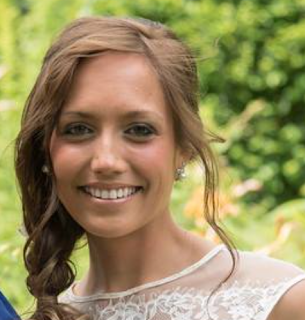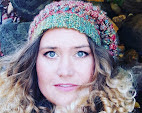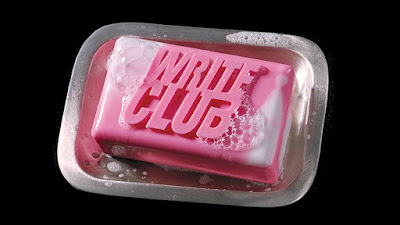This journey began for 30 writers nine weeks ago and now as it draws to a close we should take a moment and reflect on all of the wonderful writing we've seen. To reach this point in WRiTE CLUB - having your work read and judged by a conglomerate of industry professionals - is no easy task. But then again, it's not supposed to be. Writing is a gift, perfected with hard work, and this contest plays only a small part in drawing that gift out into the light. A hearty WELL DONE to each of the contestants that made it into the ring this year.
Fern Calloway and Lady Warbleon will face off for the opportunity to be crowned the 2021 WRiTE CLUB Champion. The winner of this final bout (along with the two finalist real identities) will be announced on Facebook LIVE this coming Saturday (2/5) at 6PM (central). Both of our finalists have had their 1,000-word samples forwarded to our celebrity judges and those samples are also displayed below.
Now to talk about the elephant in the room. Fern Calloway was named the winner of her semi-final bout even though she had one fewer vote. This was done because I learned there was some communication that took place, although not done purposely or will ill-intent, afforded her opponent an undue advantage. So to be fair I took steps to rectify the issue. I was sorry to have to do this, but I felt it was necessary in this case. Steps will be taken to clarify the rules regarding the effort to maintain strict anonymity for future contests.
Going forward, although the votes/comments left here will not carry any weight towards deciding a winner, everyone is still welcome to state an opinion in the comments. The comments in this round do not count towards the gift card giveaway.
Our other prizes will be announced Saturday as well.
Here are the 1000-word submissions by our two finalist.
Up first, Fern Calloway.
Leave It Alone
Sylvia picks at the crusted brown scab. It flakes off easy
and a bit of yellow goo oozes free from the now exposed hole. Instead of
relief, she’s greeted by more burning, more tingling, like ants marching one by
one through her veins. The flesh is inflamed, pulsing with heat. She should ice
it, she thinks, and folds the scab into her napkin. She scratches, scouring her
nails across the leaking puncture.
Her husband swats her on the shoulder. “Leave it alone.”
Sylvia folds her hands into her lap trying to ignore the itch,
but it’s spreading. She runs her palms over her thighs, leaving damp streaks
across the denim. “It’s fine.”
He grabs her arm, exposing the angry wound in the crook of
her elbow. Claw marks line her angry flesh like rows in a plowed field. “Doesn’t
look fine to me. When are you going to see a doctor? Make an appointment.
Please. Two weeks ago, it was a scratch.”
Closer to three, she thinks. She’d lost her golf ball, the
third one of the day, somewhere in the brambles along the river. Too stubborn
to leave it, she trudged off the fairway to wrest it from the tangled vines. A
little spilled blood was worth saving her new pink Callaway.
She slips from his grasp and picks up her fork. She scrapes together
what’s left of the gravy and rogue meat crumbles. Her stomach begs for more even
though she’s already had three servings of meatloaf. A wave of nausea washes
over her. She drops the fork.
Sweat beads on her forehead. Her skin prickles despite the
spreading rush of heat Is she getting a fever? She doesn’t want to worry Bill further,
but damn it’s hot in here. She closes her
eyes and takes a few breaths to calm the swaying room. When she opens them
again, her vision only pulses around the edges instead of spiraling out of
control. The wound throbs, pumping out a
rhythmic tune she can’t ignore. Still
itching. Still demanding. This insatiable itch is exasperating. She digs
harder, reveling in the new, fresh sting as she rakes her nails over it. The skin
breaks and trails of blood rise to the surface.
“Stop.” Bill swats her again as he stands. He clears the
dinner table and disappears into the kitchen.
Alone, Sylvia returns to her digging. One finger at first.
She prods and pokes, working the flesh aside. She forces a second, and a third,
knuckle-deep into the hole. The stretch and pull of skin peeling from muscle
eases the itching, but only just.
Something slithers away from her prying fingers, like a worm
in moist, luscious soil. It burrows deeper, snaking toward her wrist. She
screams, frustrated, and chases after it. Her forearm rips open like a weak
seam, exposing meat and tendons, but not whatever is squirming through her
insides. She rips chunks loose, hurling them away like garden detritus.
“What the hell are you doing?” Bill races to the table. He
grips the tablecloth attempting to wrap her now gushing arm with the corner.
At his touch, she lurches from the chair and scurries across
the room on all fours, leaving a trail of blood in her wake. She crouches by
the loveseat, hunching over her arm like a ravenous dog with a gnarled rabbit. Growling
now, she turns her attention back to the flayed meat. Tendons hang free, swaying
like pole-bean tendrils caught in a breeze.
Her purpose narrows onto the squirming thing hiding somewhere
between her bones, out of reach. She grunts, and lowers her teeth to her arm,
peeling away meat like bark from a birch tree. Shredding and pulling, she eats
her way deeper between radius and ulna. Hunting for the wriggling thing. The
itch.
She flings a mouthful to the floor. The wad of goop
splatters onto their expensive Persian rug, marring it with a stain that will
be impossible to remove. She doesn’t
care, another bite. Another mound. A new stain.
From somewhere over her shoulder, Sylvia’s husband screams,
the sound not unlike a middle-school girl. He flails like a stale scarecrow
caught in a windstorm before he collects himself enough to pull something from
his pocket.
“I’m calling…” He heaves like he might vomit. “…an
ambulance.” He stabs at the screen, glances back to Sylvia. Bill takes another
step back toward the kitchen. Gags again. His face is devoid of color, his lips
flapping. Bill’s words do not register as language, only syllables she can’t
comprehend.
His scent is overpowering.
Mouthwatering.
Sylvia drops her mangled arm and it dangles useless at her
side. Her lips pull away from her teeth. She snarls. A glob of drool clings to
her chin a moment before falling.
Gnashing her teeth, she lunges. Her arm flops as she closes the
distance. The phone tumbles from his grip and clatters away, sliding under the sofa.
They careen to the floor landing in a weighty thud.
She grunts, swallows, bites again, digging her teeth into
his neck, his face, his chest. Wherever she can get a mouthful. His final
breath erupts, spraying her with crimson mist. He stops fighting.
What’s left of him soaks into their forever ruined Persian.
Sylvia snorts, her hunger satisfied.
The thing in her arm coils around bone and scrapes against a
nerve. Something green peeks out from the gaping wound before disappearing
again into the mangled mess that once was her arm.
Footsteps thud against the porch steps, followed by a knock
at the door. “Sylvia? I heard screaming. Is everything okay?”
Sylvia ignores the sound, digging at that insatiable itch.
There’s a rattling, a jangle of metal against metal,
followed by grinding.
A click. The knob turns.
The door opens.
“Sylvia, honey? Bill? I’m coming in.”
##################################################################################
And finally, Lady Warbleon.
The Keeper of Kilkee
There are legends,
and then there are tales that are etched into the bones of a place, carved so
deep in its culture that you cannot separate them from fact. What begins as fairy-lore
spreads like something infectious, from one generation to the next, until every
soul and street and structure is tainted by superstition.
That was the way with
Kilkee, a small oceanside town tucked in the northern recess of County Clare.
It was not a legend that merrows haunted its coast—it was a collective understanding
that the ocean was dangerous and that the women creatures made it so. When men
turned up missing, the townspeople blamed whisky or a wandering eye, but they
all knew the truth.
As the lighthouse
keeper, Fionn was closer to this truth than most. He felt the unnatural
throbbing of the tide when the women moved inland, could pick up their cloying
scent on the breeze when they waded below the cliffs. He would often turn on
records at night to drown out their sorrowful wails that seeped through the cracks
in his walls.
There had been none of those warnings when Alice first appeared outside
the lighthouse one summer day. Fionn knew he should be wary of her beauty, of
her newness, but she told him her family had sailed in from Limerick on
holiday, and he had to admit that was possible. Plenty of tourists summered in
Kilkee to stroll the cliffs and watch for whales breaching off the reef. He
would give them tours of the lighthouse and they would ask him to tell them
ghost stories, which were the only kind Fionn knew.
But Alice seemed more interested in Fionn than stories so, against
his better judgement, he invited her in for tea.
“Will you be staying until September?” Fionn meant this as a
pleasantry, so he was startled at the peak of hope in his voice.
“Yes, I go back to Mary Immaculate in the fall,” said Alice. “I’m
studying to be teacher.”
The concept of university felt at once very foreign and very
human—surely a creature of the sea would not be matriculating—and Fionn’s guard
lowered further. “You’ll teach in Limerick then?”
She shrugged. “Perhaps I’ll go to America.”
“That’s very far away.”
“Would that be so bad?”
Fionn considered this. He had only ever known Kilkee, spent all nineteen
years in the same two-mile parish, memorizing the curve of the bay. He hadn’t
given much thought to the world beyond it, and now he couldn’t think of anything
beyond the curve of Alice’s lips pressed against her cup. “They’d be lucky to
have you.”
Alice smiled shyly, as if he had said something intimate. Perhaps
he had meant it that way; he couldn’t deny he found her fascinating. Unable to
do otherwise, he smiled back, and that was how it began.
Alice returned to the lighthouse the next day, and the next. Fionn
took her canoeing along the strand and for ice creams in town. He discovered
that she had a soft, melodic laugh, and that he would do nearly anything to
hear it. He grew more entranced by the day. As they walked along the beach
one morning, he asked to hold her hand. And then, while swimming in the Pollock
Holes, he finally asked to kiss her. Her lips tasted of salt, and he began to
wonder if it was the water or if she always tasted that way. Her eyes were the
same color as the ocean, now that he really looked.
“Alice, tell me the truth,” he said suddenly.
“About what?”
“What you are.”
But she only laughed and splashed him as she crawled back onto the
blackstones to sun herself.
It went on like this for weeks. Fionn watched Alice nap under the
twisted bog tree and picked her cowslip and milkwort to tuck behind her ear.
And he noticed more and more how she bore the signs of the sea—a slight web in
her toes, damp hair when she returned to him in the morning. When they eventually
made love in the gallery of the lighthouse, she moved rhythmically, like the ebbing
and filling of the tide.
Instead of being afraid of this revelation, he felt reconciled. As
with the ocean, he knew he didn’t stand a chance against her once she’d chosen
him, and he didn’t want to be without her.
That night, they walked to the cliffs to watch the sunset, listening
to the milky breakers frothing against the rocks far below them.
Fionn took Alice’s hand and kissed her knuckles. “I’m ready,” he
told her.
“For what?” she asked.
“I know I must return to the sea with you. That’s why you’ve
come.”
Alice laughed again—soft, melodic—and said nothing.
Fionn pressed further. “You don’t have to force me with your
magic. I want to go with you.”
Now Alice shifted her eyes to him. He saw fear in her face, or
perhaps it was guilt at being found out. “What do you mean?”
He took a step closer to the cliff’s edge. “We can go tonight. We
don’t have to wait. Come, Alice.”
She tried to pull her hand from his, but he knew she was just
being coy. He felt the truth of it in his bones. “I love you, Alice. It’s
alright.”
His feet shifted against the earth, and her breath hitched. If she
screamed at all, it was swallowed up by the wind cutting along the coast and
replaced by the steady intone of the ocean. Where two lovers once stood, now
there was only a single sprig of milkwort that had come loose from its perch.
The lighthouse stayed lit for many days until the townspeople came
looking after its keeper, only to find him gone. They blamed love, said he had
fallen for a girl from Limerick and followed her out of town. But they all knew
the truth.
###################################################################################
I hope everyone joins me Saturday for the big reveal.
Best of luck contestants!











